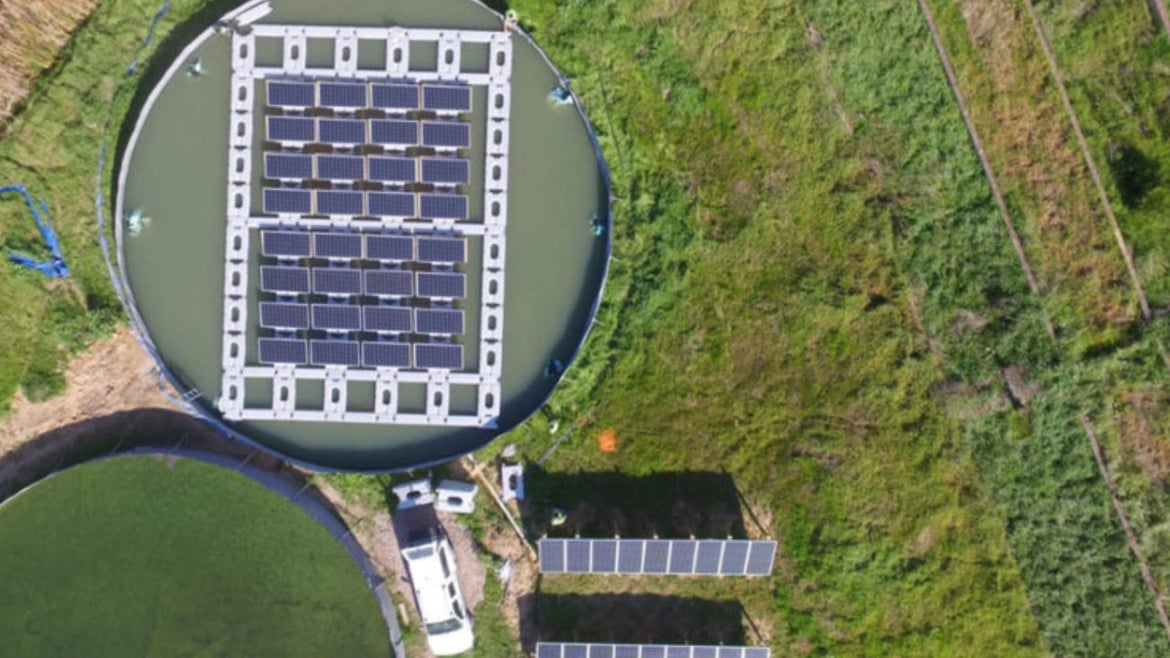The pioneering installation is a way to make renewable energy and reduce water evaporation, the South African university said.
South Africa’s University of Cape Town is hoping to change the way the city gets its energy, and in an effort to go green and combat climate change, it has installed unique floating solar panels that will harness the power of the sun and water to craft power, the school said in a statement.
The university partnered with City of Cape Town, the Water Research Commission, and Floating Solar Ltd.
Peter Varndell of Floating Solar, who provided the equipment and was the project developer, said in a statement that this is the first floating solar plant that has been developed on Cape Town’s infrastructure.
“This allows the City the opportunity to better understand the technology and its potential application across other sites as part of its drive towards renewable energy,” he said.
The significant benefits of this system are that it reduces evaporation from water bodies, while sparing limited land expanses for other use, the university says in a statement.
“We have been involved in floating solar for a few years now; and in trying to catalyze the market, [we] realized the importance of having factual information around the evaporation-savings potential and the improved performance of floating solar over land-based solar,” Varndell said. “This is key in defining the value and investment case for this unique solution. We will run this experiment for 12 months, while continuing with other projects across Southern Africa.”
In 2018, Cape Town nearly ran out of water and has since been in and out of a drought crisis. The idea of this new development at the university is to help curb that in the future and create renewable energy.
“The Kraaifontein floating solar plant produces electricity at pilot scale only, and is designed for research purposes. Once the performance of this technology has been accurately ascertained, the City will be in a position to include it in strategic planning at scale on larger bodies of water,” Richard Larmour, of the Advanced Machines and Energy Systems said in a statement.
In a statement to the university, the City’s mayoral committee member for Energy and Climate Change, Councilor Phindile Maxiti, said the pilot project is a tangible example of how to build a sustainable future and wean their way from the country’s power supplier, Eskom.
“The City has been fighting to move away from the sole reliance on Eskom, and to diversify the energy mix for cleaner and more affordable and secure power for all. In addition, given that vacant land in the city is very expensive and rooftop solar PV systems are relatively small, Cape Town aims to explore floating solar PV systems for larger-scale solar PV installations, as part of its pioneering work to diversify the energy mix, to lead by example and to take climate action leadership. Importantly, great things can only be done with great partners,” Maxiti said. “Generating clean power and reducing [the] evaporation rates of water bodies could be a great double-win for sustainability.”
The solar panels fit together like Lego bricks, those who assembled them said, and the panels will be monitored in hopes to then be brought to larger bodies of water.






